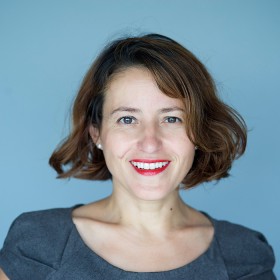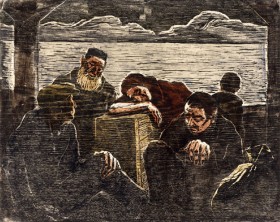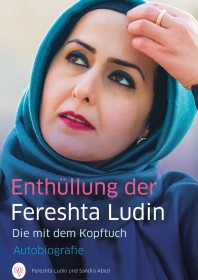The “Daughters and Sons of Gastarbeiters” (guest workers) are the Academy of the Jewish Museum Berlin’s guest on 14 October 2015, part of the “New German Stories” series. As children, these Berlin authors followed their parents to Germany from their home villages in Anatolia, southern Europe and the Balkans, or they were born into working-class neighborhoods around Germany. Their mothers and fathers were supposed to bolster the German economic recovery as mere “guest workers”. The authors tell their personal stories, look back, follow their parents’ paths and thus add to Germany’s culture of memory. In advance of the event, we’ve asked three questions of Çiçek Bacık, the project’s leader and co-initiator:

Çiçek Bacık © Neda Navaee
Ms. Bacık, how did the “Daughters and Sons of Gastarbeiters” come to be and what was the motivation to tell these personal stories?
Last year, I went to a reading with my friend, the journalist Ferda Ataman. We were sitting in a bar afterwards. “Ferda, we have to start telling our stories and share them with others. We ourselves have to shed light on a dark chapter of our past we’ve successfully repressed,” I said. “Sure, and what’s stopping us?” That was the starting point for “Daughters and Sons of Gastarbeiters”. Our first reading took place in January 2015 at the Wasserturm in Kreuzberg. → continue reading
An Internet Harvest for the Day of the Refugee

“Refugees”, color woodcut by Jakob Steinhardt, 1946, purchased with funds provided by Stiftung DKLB. You can find this and other related objects in our German-language collection database.
This year’s Day of the Refugee takes place today, 2 October 2015 as part of Intercultural Week, with the slogan “Refugees Welcome!” We have taken this as an occasion to go through our own and other websites and blogs, gathering items on this subject. Since we work at a Jewish museum, stories about fleeing are part of our ‘everyday business’: practically all of the family collections given to our museum tell stories of persecution and flight, going beyond mere statistics to depict the fates of individuals. Letters, travel documents, photographs, and personal memorabilia tell of the desperate search for a country to emigrate to, failed or successful emigrations, the often difficult life in a foreign country, the search for relatives, friends, and former neighbors, now scattered across the entire world. We tell these stories in our permanent exhibition and they have also been the subject of various special exhibitions. At the moment, for instance, in our current cabinet exhibition “In a Foreign Country” you can see publications that originated in Jewish Displaced Persons Camps. Jewish men and women waited there for their passage to Palestine or later Israel, to the USA and other countries, where they hoped to start a new life after the Shoah.
In addition to our exhibitions, we also make stories of flight and displacement visible online, for example with a selection of objects: → continue reading
A Conversation with Fereshta Ludin about the Headscarf Debate, Discrimination, and Her Hopes for the Future.
To win the right to work as a teacher in the classroom while wearing her headscarf, Fereshta Ludin had to go all the way to the German Supreme Court (see below). On 17 September 2015, she will join us as part of the series “New German Stories” to introduce her book Enthüllung der Fereshta Ludin. Die mit dem Kopftuch (“The Unveiling of Fereshta Ludin: The One with the Headscarf”). Rafiqa Younes and Julia Jürgens spoke with her in the lead-up to the event.

Book cover © Deutscher Levante Verlag
Ms. Ludin, did you ever guess that the first lawsuit you filed against your employers, in 1998 when you were 25 years old, would set off a nationwide debate about the headscarf ban?
You can’t really imagine something like that. I was still very young and idealistic. I wanted to work as a teacher and had no intention of provoking the public or any politicians.
From your perspective, was it worth it to go all that way through courts, becoming, as you did, a public figure – “the one with the headscarf” as the title of your book ironically references?
I don’t regret a single step along the way. I would have regretted much more, to have had to endure the injustice. I took an active stand against discrimination by going through the courts. Many other women were also affected. It was never my aim to become a public person. → continue reading


